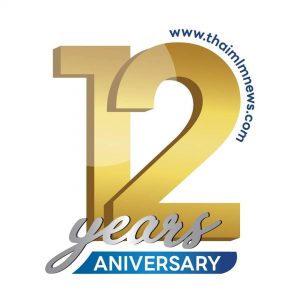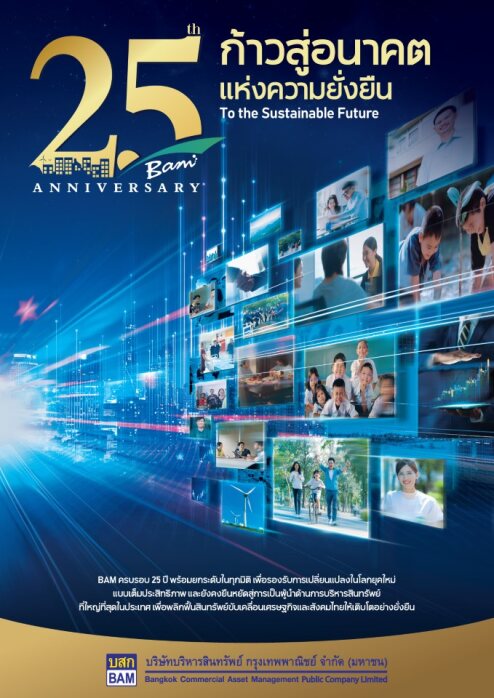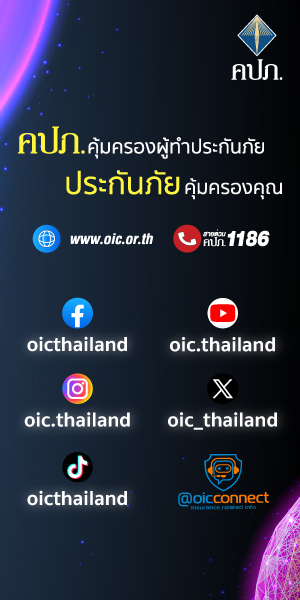ในขณะที่ประชาคมโลกกำลังมุ่งสู่การสร้างระบบทุนนิยมแบบใหม่ที่แข็งแรงมั่นคงผ่านการขับเคลื่อนของเทคโนโลยี web3
เอบีมฯ เผยข้อมูล ที่ผู้ประกันตนควรทำความเข้าใจถึงแง่มุมบางประการก่อนนำระบบนี้ไปปรับใช้อินเตอร์เน็ตถูกสร้างขึ้นเพื่อเป็นช่องทางการเข้าถึงข้อมูลที่สะดวกและรวดเร็ว แต่เมื่อเวลาผ่านไปหลายทศวรรษ อินเตอร์เน็ตมีพัฒนาการที่วิวัฒน์จากรูปแบบดั้งเดิมเป็นอย่างมาก รวมทั้งมีผู้ใช้เพิ่มขึ้นอย่างรวดเร็วทั่วโลก

โดยมีแพลตฟอร์มต่าง ๆ เป็นตัวกลางควบคุมการแลกเปลี่ยนข้อมูลที่เกิดขึ้นผ่านอินเตอร์เน็ต ปรากฎการณ์นี้ถูกมองว่าเป็นการสร้างโอกาสให้แพลตฟอร์มต่าง ๆ ที่เรียกรวมกันว่า Big Techs เพื่อเก็บ ผูกขาด หรือแม้แต่นำข้อมูลของผู้ใช้ไปใช้อย่างผิด ๆ เพื่อแก้ไขปัญหาดังกล่าวจึงมีการคิดค้นหนทางแก้ปัญหานี้และก่อเกิดแนวคิด web3 หรือเจเนอเรชั่นที่สามของอินเตอร์เน็ตขึ้นมาในปี 2564 พร้อมกับการเติบโตของเทคโนโลยีบล็อกเชน โดยมีแนวคิดหลักคือการกำจัดตัวกลางในการแลกเปลี่ยนข้อมูลและทำให้ ครีเอเตอร์เป็นเจ้าของคอนเทนต์ดิจิทัลได้โดยไม่มีบุคคลที่สามเข้ามาแทรกแซง
ด้วยเหตุนี้จึงไม่ต้องสงสัยเลยว่าเหตุใด web3 จึงเป็นเทคโนโลยีที่ได้รับความสนใจอย่างมากจากการขยายตลาด ยกตัวอย่างกรณีหนึ่งของการนำเอา web3 มาใช้ได้อย่างโดดเด่นและเป็นที่สนใจอย่างมากคือ DeFi (decentralized finance) หรือธุรกรรมที่ไม่มีตัวกลาง ที่ไม่ต้องพึ่งพาตัวกลางด้านการเงินเช่นการแลกเปลี่ยนเงินตราหรือธนาคาร วิธีการทำงานของ DeFi คือการใช้ smart contract ที่สร้างสัญญาขึ้นมาโดยอัตโนมัติบนบล็อกเชน โดย DeFi มีข้อดีหลายประการ ตั้งแต่การช่วยลดต้นทุนการจัดการและค่าธรรมเนียมธุรกรรมเพราะไม่ต้องใช้ตัวกลาง รวมทั้งเพิ่มความโปร่งใสในการทำธุรกรรมเพราะทุกกิจกรรมเกิดขึ้นผ่าน smart contract ที่ทุกฝ่ายสามารถอ้างอิงได้อย่างเปิดเผย นอกจากนี้ DeFi ยังไม่เพียงสามารถใช้กับธุรกรรมทางการเงินแต่ยังสามารถนำไปใช้ในเชิงดิจิทัลได้อีกหลายรูปแบบด้วย
การประกัน แบบไม่มีตัวกลางก็เป็นอีกตัวอย่างหนึ่งของการใช้เทคโนโลยี web3 โดยทั่วไปแล้วประกันให้ความคุ้มครองครอบคลุมความเสี่ยงด้านการเงินและสิ่งที่เป็นกายภาพอื่น ๆ เช่น ผู้คนและทรัพย์สิน แต่ประกันแบบไม่มีตัวกลางโดยมากแล้วจะใช้คุ้มครองสินทรัพย์ดิจิทัลเท่านั้น (เช่น คริปโตที่ซื้อขายกันแบบไม่มีตัวกลาง) และยังจัดการโดยองค์กรอัตโนมัติแบบกระจายศูนย์ เรียกว่า DAO (Decentralized Autonomous Organization) ที่ถูกสร้างขึ้นบนบล็อกเชนเพื่อจุดประสงค์เดียวกัน ในส่วนของกระบวนการเคลม การจ่ายเงินชดเชยของประกันแบบดั้งเดิมทำผ่านผู้ตรวจสอบที่ใช้ระบบหลักของบริษัทประกัน แต่สำหรับประกันแบบไม่มีตัวกลาง การตัดสินใจอนุมัติการเคลมเกิดขึ้นอัตโนมัติโดยโปรแกรมที่ทุกคนสามารถทำธุรกรรมที่เข้าถึงและเข้าใจได้ด้วย smart contract ซึ่งทำให้กระบวนการเคลมเป็นไปอย่างโปร่งใส
DeFi มอบทั้งโอกาสและความเสี่ยงสำหรับบริษัทประกันที่ดำเนินธุรกิจอยู่แล้วภายใต้มุมมองของ “ตลาด” “โมเดลธุรกิจ” และ “บริการ” ดังนี้
การเติบโตขึ้นเรื่อย ๆ ของ “ตลาด” web3 สร้างโอกาสทางธุรกิจที่สำคัญสำหรับบริษัทประกันที่ดำเนินธุรกิจอยู่แล้ว แต่ในอีก
แง่หนึ่ง บริษัทประกันใหม่ ๆ ที่ครอบคลุมความคุ้มครองไปถึงสินทรัพย์ DeFi อาจเข้ามาเป็นอีกผู้เล่นหนึ่งในตลาดประกันแบบดั้งเดิม และกลายเป็นคู่แข่งที่สำคัญของบริษัทประกันที่ให้บริการอยู่แล้ว ในความเป็นจริงนั้นในตลาดเกิดใหม่ต่าง ๆ DAOs เกิดขึ้นโดยบริษัท องค์กร และบริษัทด้านเทคโนโลยี ที่รวมไปถึงบริษัทประกันด้วย เพื่อสร้างการประกันที่ครอบคลุมความเสี่ยงด้านเกษตรกรรม
จากมุมมองของ “โมเดลธุรกิจ” เงินเดือนและคอมมิชชั่นของพนักงานขายประกันในบริษัทมาจากเบี้ยประกันที่ผู้ถือกรมธรรม์จ่ายเป็นค่าบริการในการดำเนินงาน ซึ่งการประกัน DeFi ได้เปรียบบริษัทประกันในด้านต้นทุน เพราะมีกระบวนการจ่ายเคลมที่เป็นอัตโนมัติจาก smart contract ด้วยเหตุนี้ประกัน DeFi จึงอาจทำให้บริษัทประกันต้องหันมาพิจารณาโมเดลค่าคอมมิชชันของตนใหม่ ซึ่งบริษัทประกันสามารถใช้โมเดลธุรกิจใหม่ช่วยสร้างโอกาสทางการเงินได้มากขึ้นผ่านระบบเศรษฐกิจแบบกระจายศูนย์ มากไปกว่านั้นบริษัทยังสามารถสร้างความโปร่งใสในด้านการพิจารณาค่าสินไหมและกฎการดำเนินการ
ที่จะนำไปสู่ความเชื่อใจของลูกค้าที่เพิ่มมากขึ้นอีกด้วย
ในส่วนของ “การบริการ” ประกัน DeFi มีการทำงานผ่านบล็อกเชนและ smart contract ทุกคนจึงสามารถซื้อประกันได้ทุกที่ทุกเวลา ผลิตภัณฑ์ด้านประกัน DeFi เริ่มออกมาสู่ตลาดบ้างแล้วและเริ่มสร้างการแข่งขันแบบไร้พรมแดนขึ้น อย่างไรก็ตามการที่บริษัทประกันส่วนใหญ่ยังไม่นำเทคโนโลยี DeFi ไปใช้จะทำให้อยู่ในภาวะเสียเปรียบ มากไปกว่านั้นบริษัทประกันยังสามารถเพิ่มประสิทธิภาพให้กับการดำเนินงานด้วยการนำเทคโนโลยีบล็อกเชนมาใช้ในกระบวนการทางธุรกิจ และยังสามารถพัฒนาและเปิดตัวบริการใหม่ ๆ ผ่านเทคโนโลยี web3 ได้อีกด้วย
แต่ด้วยข้อจำกัดด้านระบบและข้อปฎิบัติต่าง ๆ ที่ยังมีอยู่ การนำเทคโนโลยี DeFi มาใช้ในบริษัทประกันจึงนับเป็นความท้าทายอย่างหนึ่ง ดังนั้นบริษัทประกันจึงต้องเริ่มก้าวแรกของการเปลี่ยนแปลงด้วยการศึกษาข้อได้เปรียบของประกัน DeFi จากกรณีศึกษาอื่น ๆ และข้อบ่งใช้อย่างถี่ถ้วน และควรเข้าร่วม DAOs ด้วย
เอบีม คอนซัลติ้ง (ประเทศไทย) หนึ่งในบริษัทที่ปรึกษาชั้นนำระดับโลกด้านธุรกิจและดิจิทัลทรานส์ฟอร์เมชันเชื่อเป็นอย่างยิ่งว่าบริษัทประกันควรพัฒนาบริการใหม่ ๆ จากแนวคิด web3 เหตุเพราะเป็นกลไกที่สามารถช่วยเพิ่มการติดต่อกับลูกค้าได้ กระตุ้นให้ผู้คนเปลี่ยนพฤติกรรมอย่างที่ประกันแบบดั้งเดิมไม่สามารถทำได้ และสร้างบริการที่ช่วยแก้ปัญหาสังคมได้
เกี่ยวกับบริษัท เอบีม คอนซัลติ้ง (ประเทศไทย) จำกัด
บริษัท เอบีม คอนซัลติ้ง (ประเทศไทย) จำกัด เป็นบริษัทในเครือบริษัท เอบีม คอนซัลติ้ง จำกัด โดยมีสำนักงานใหญ่ตั้งอยู่ที่กรุงโตเกียว ประเทศญี่ปุ่น มีทีมงานกว่า 6,600 คน ที่ให้บริการลูกค้าทั่วภูมิภาคเอเชีย อเมริกา และยุโรป เปิดให้บริการที่ปรึกษาในประเทศไทยเมื่อปี 2548 บริษัท เอบีม คอนซัลติ้ง (ประเทศไทย) มีทีมงานผู้เชี่ยวชาญกว่า 400 คน ที่ให้บริการลูกค้าด้วยความเชี่ยวชาญด้าน Business และ Digital Transformation เพื่อช่วยให้บริษัทและองค์กรต่าง ๆ บรรลุเป้าหมายที่วางไว้ในฐานะพันธมิตรที่สร้างสรรค์ เพื่อช่วยขับเคลื่อนธุรกิจ อุตสาหกรรมและสังคมให้ก้าวสู่การเปลี่ยน
ABeam points out decentralized finance’s opportunities and threats for insurers
As the global community is gearing towards building a concrete new capitalism fueled by web3 technology, there still are aspects for insurers to discern
When the Internet was created, it was intended for quick and convenient access to information. However, as it evolves over the decades with rapidly increasing users all over the world, the Internet has been dominated by platformers where information is exchanged. This incident arguably allows these so-called “big techs” to collect, abuse, monopolize and even manipulate the users’ information they have acquired. To fix this, the concept of web3, the third generation of the Internet, has surfaced in 2021. With the emergence of blockchain technology. The essential idea of web3 is to decentralize the data exchange, allowing creators own digital contents without third-party interference.
Undoubtedly, web3 attracts attention of market proliferates. One of the leading use cases of web3 is DeFi (decentralized finance), which does not rely on centralized financial intermediaries such as exchanges or banks. Instead, DeFi uses smart contracts, which automatically execute contracts on the blockchain. DeFi has several advantages that including low operational costs and transaction fees due to the absence of a centralized intermediary and high transaction transparency since it operates based on smart contracts that anyone can refer. Also, DeFi does not limit itself to providing financial functions but also many other aspects of digital usage.
DeFi insurance is another example of web3 use. While conventionally, insurance covers the monetary loss risk to physical things such as people and property. Instead, DeFi insurance mainly covers risks to digital assets (e.g., crypto assets traded on DeFi). Moreover, it is often managed by a decentralized organization called DAO (Decentralized Autonomous Organization), built on a blockchain with a common purpose. As for the claim process, the conventional insurance payment is determined by an examiner using the insurance company’s core system. In contrast, in some cases in DeFi, the payment decision is automated by a program that can be referred to by anyone using smart contracts, making the process highly transparent.
DeFi presents both opportunities and threats to existing insurance companies from the three perspectives of “market,” “business model,” and “service”.
The growing web3 market represents a significant business opportunity for established insurance companies. On the other hand, emerging insurance players covering DeFi assets risk may enter the traditional insurance market, posing a threat to established insurers. In fact, in emerging markets, DAOs have been formed by companies, organizations, and tech companies, including insurance companies, to provide agricultural risk insurance.
From a business model perspective, salaries of insurance company employees and agency commissions are generally comprised of the premiums paid by policyholders as operating expenses. DeFi insurance, on the other hand, has a cost advantage over existing insurance companies. In addition, DeFi insurance often automates the claims payment process through a program, i.e., a smart contract. As a result, DeFi insurance may force established insurance companies to rethink their commission business model. However, insurers can unbundle their functions as they participate in the DAO economy for monetization opportunities with a new business model. Furthermore, they can gain greater transparency in the decision-making process and operational rules, which leads to greater customer trust.
As for service, because DeFi insurance is based on blockchain and smart contracts, and it can be purchased by anyone anywhere. As some DeFi insurance products have already emerged, borderless competition has begun. However, the fact that most of insurers haven’t yet gotten involved in the DeFi insurance movement may disadvantage them. Moreover, insurers can improve operational efficiency by integrating blockchain technology into their business processes. Also, they can develop and launch new services based on the ever-changing web3 concepts and trends.
Given the current system limitations and regulations, it is not easy for insurers to enter the “business to cover assets on DeFi.” Therefore, insurance companies need to take the first step to learn about DeFi insurance by researching advanced cases and protocols, as well as participating in DAOs.
ABeam Consulting (Thailand), one of the leading global business and digital transformation consulting firms, strongly believes that insurance companies should be able to develop new services based on the web3 concept after a short-term aspect. This is because the web3 mechanism can increase customer contacts, urge people to change their behavior in ways that could not be achieved with the traditional insurance, and develop services to solve social issues.
##
About ABeam Consulting (Thailand) Ltd.
ABeam Consulting (Thailand) Ltd. is a subsidiary of ABeam Consulting Ltd. – headquartered in Tokyo having 6,900 people serve clients throughout Asia, the Americas and Europe providing consulting services in Thailand since 2005, ABeam Consulting (Thailand) has more than 400 professionals serving clients in Thailand with expertise in business and digital transformation services that create the future together with corporations and other organizations. As a creative partner leading the way reliably through change, we contribute to industrial and societal change.


































































